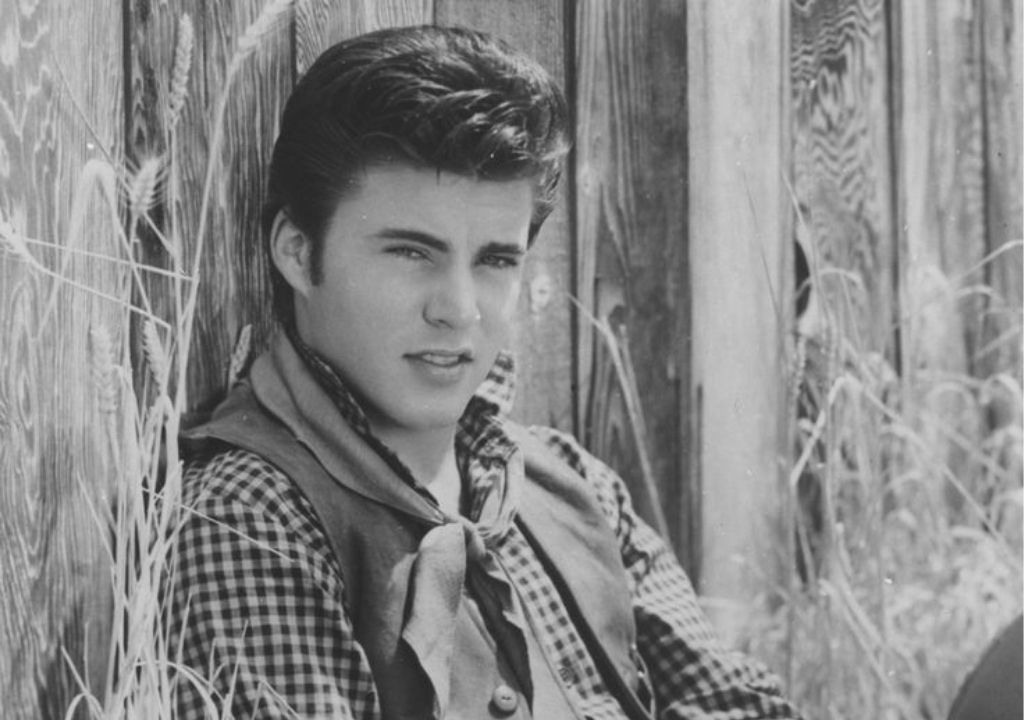Video
About the song

Ricky Nelson – “I’m Walkin’” – A Timeless Rock and Roll Classic
The 1950s and early 1960s marked the golden era of rock and roll, with artists and bands creating unforgettable hits that continue to influence generations of musicians today. One such artist is Ricky Nelson, whose track “I’m Walkin'” stands as a perfect example of the vibrant energy and catchy rhythms that defined the rock and roll movement. Released in 1957, this song showcases Ricky Nelson’s unique style, blending pop and rock into a timeless tune that still resonates with audiences around the world.
The Story Behind “I’m Walkin’”
Written by Fats Domino and Dave Bartholomew, “I’m Walkin’” was originally a hit for Fats Domino in 1957, but Ricky Nelson’s version gave the song a fresh spin, turning it into a crossover success that found a place on both the pop and rhythm and blues charts. Ricky Nelson, who was already well-known as a teen idol from his role on the popular television show “The Adventures of Ozzie and Harriet,” brought his signature smooth vocal style to the track, giving it a new level of charm and appeal.
“I’m Walkin’” was part of Nelson’s debut album, Ricky Nelson (1957), which solidified his place in the burgeoning rock and roll scene. The song features a driving rhythm, catchy lyrics, and an infectious melody that embodies the spirit of 1950s rock and roll. Nelson’s clean, polished voice, combined with the upbeat arrangement, made it a hit, and it quickly became one of his signature tracks.
Chart Success and Recognition
Upon its release, “I’m Walkin’” became a major hit for Ricky Nelson, reaching No. 4 on the Billboard Hot 100 and No. 2 on the Billboard R&B Chart. This success helped to establish Nelson as one of the premier young talents of his era, following in the footsteps of rock pioneers like Elvis Presley. The song’s popularity not only showcased his vocal talent but also highlighted his ability to seamlessly blend pop, rock, and rhythm and blues into a sound that appealed to a wide audience.
“I’m Walkin’” was significant because it marked Nelson’s continued transition from being just a TV star to a full-fledged rock and roll artist. His ability to make an impact in the music industry helped him secure his place in rock history, with numerous hits to follow throughout the 1960s.
Ricky Nelson: A Pioneer of Rock and Roll
Ricky Nelson’s influence on rock and roll extends beyond his hit songs. With his good looks, smooth voice, and charming personality, he became a teen idol during the 1950s and 1960s, admired by millions of fans across the globe. Born Eric Hilliard Nelson in 1940, he was the son of Ozzie and Harriet Nelson, stars of the radio and television show of the same name. Ricky’s musical talents were encouraged by his family, and he quickly made a name for himself as a young musician, inspired by the likes of Elvis Presley and Chuck Berry.
With his debut single “I’m Walkin’,” Nelson’s career as a rock star began in earnest, and he soon released a string of hit songs, including “Poor Little Fool,” “Travelin’ Man,” and “Hello Mary Lou.” His music evolved over the years, but he always stayed true to his roots, blending the influences of rock, pop, and country.
Why “I’m Walkin’” Remains a Classic Today
Even though “I’m Walkin’” was released more than 60 years ago, it continues to be an essential part of the rock and roll legacy. The song’s upbeat rhythm, catchy melody, and Nelson’s infectious delivery have ensured its place as one of the most beloved tracks from the late 1950s. Today, “I’m Walkin’” remains a staple on classic rock and oldies playlists, a song that brings to mind the carefree spirit of youth and the excitement of the early days of rock and roll.
The track is also often included in collections celebrating the best of 1950s rock, making it a favorite for new listeners and long-time fans alike. With its timeless appeal, “I’m Walkin’” serves as a great introduction to Ricky Nelson’s impressive body of work, as well as a perfect representation of the early sound of rock and roll.

